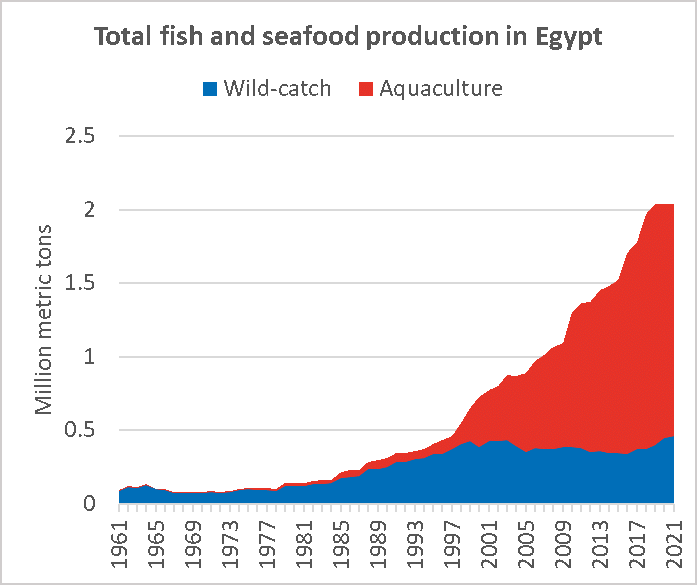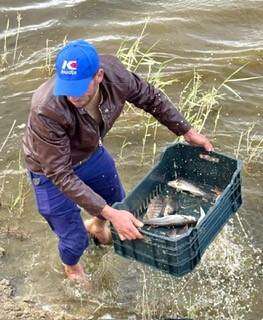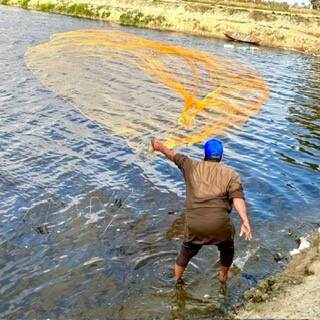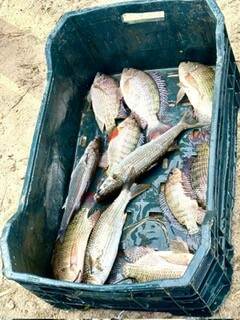Egypt’s Aquaculture Sector Set for Growth and Export Potential
Egypt’s aquaculture sector, ranked 7th globally and valued at over USD 3.5 billion, continues to lead as Africa's top producer of Tilapia, with total aquaculture annual production standing at 1.6 million tons according to FAO (Food Agriculture Organization)

At the recent "Assessment of Water Quality and Food Safety in Egyptian Aquaculture" workshop, experts and stakeholders came together to address critical challenges, explore opportunities and practical solutions for improving the Egyptian aquaculture sector, benefiting both local and export markets, especially the EU. This workshop is based on a study established in collaboration by Koudijs & Kapo Feed (KKF) and the Embassy of the Kingdom of the Netherlands in Cairo. The Embassy of the Netherlands, represented by Tycho Vermeulen (Agricultural Counselor) and Omar AbdelLatif (Agricultural Advisor) , emphasized their commitment to sustainable aquaculture development in Egypt and their aim for collaboration with KKF to carry out this study.
Collaboration and Strategic Growth
The workshop emphasized the need for stronger collaboration among private sector players, the National Food Safety Authority (NAFSA), the Lakes and Fish Resources Protection and Development Agency) (LFRPDA) and relevant ministries to improve food safety and traceability systems. Stakeholders discussed strategies to tackle post-harvest challenges and to ensure compliance with international standards, particularly for exports to the European Union.
Tycho Vermeulen (Agricultural Counselor, The Embassy of the Kingdom of the Netherlands in Egypt) noted the private sector’s pivotal role in knowledge-sharing and professionalizing the aquaculture industry.
Alaa Kamar, CEO and Co-Owner of KKF, added, Improving fish food safety to meet EU standards should also set the benchmark for Egyptian consumers. Furthermore, as aquaculture is a relatively new sector compared to livestock, it presents significant opportunities for rapid development and investment.”
Dr. Mohamed Fathy Osman (Aquaculture Professor and Consultant, Former Head of the general authority for fish resources development) added that farmed fish is a highly economical protein source, with production costs being four times lower than red meat, making it a vital component of Egypt’s food security.

Study Findings: Comprehensive Testing and Key Results
As part of the study, samples of water and fish were collected from Egypt's three largest aquaculture hubs: Kafr El Sheikh, Sharkia, and Behera. All samples were analyzed by QCAP, the official laboratory of the Egyptian Ministry of Agriculture., the only nationally approved authority for monitoring pollutants in food exports and imports and is internationally accredited as the first laboratory in the Arab world capable of analyzing pesticide residues and pollutants with global standards.
No food safety hazards were observed in the production phase during the study, confirming Egypt's ability to maintain high safety standards during production. However, the findings also highlighted the need for considerable improvements in the post-harvest stage to ensure compliance with food safety requirements and unlock export opportunities.
Similarly, representatives from WorldFish, Dr. Ahmed Nasrallah (Country Head in Egypt) and Dr. Gamal El Naggar (Chief Scientist), reaffirmed that the study conducted is in line with similar research they have done on the same topic.
Marwa Lotfy (Head of Fish and Fisheries Inspection for NAFSA) emphasized The National Food Safety Authority’s success with seafood farmers could serve as a model for guiding farmed fish producers toward export readiness."
Lotfy and other panelists highlighted the importance of monitoring systems and coding farmed fish as first steps toward achieving export compliance as the lack of such systems is the only reason for Egypt’s inability to export to the EU.

Traceability and Technical Support for Farmers
Yasmine Kamar (Business Director at KKF) highlighted the role of feed companies in supporting traceability at the start of the production cycle. “Feed companies can assist farmers in monitoring the sourcing of fry and fingerlings and managing farm data effectively. At Koudijs & Kapo Feed, we already provide free technical support to farmers, making traceability systems achievable,”
Kamar said.
KKF’s partner, De Heus represented by Dr. Julia Mas Munoz (Global Aquaculture Product Manager) and Jules Wehry (Global Aquaculture Nutritionist) shared De Heus’s experience in supporting fish farmers in Vietnam and Asia in complying with EU standards for export by optimizing feed recipes to meet nutritional and physical requirements such as muscle tissue weight and composition. Dr. Munoz, Wehry and Dr. Nader Shams (Technical Support Manager at KKF) were also in charge of conducting the study and presenting the findings.
Animal welfare stands as a vital component of sustainable aquaculture and best practices. Dr. Diaa El Kenawy (Head of Research, Central Lab for Aquaculture Research) stressed that access to clean water is essential to ensure fish health and welfare, which directly impacts production quality and marketability.

The Role of Tilapia in Egypt’s Economy
Tilapia, a cornerstone of Egypt’s aquaculture sector, holds significant historical and economic importance.
Alexander Peeters, General Manager of Koudijs & Kapo Feed (KKF), noted, “Tilapia has been integral to Egypt’s culture since Pharaonic times and continues to fulfill a critical role as the cheapest source of protein. With rising population demands, it is essential for sustainable development.”
Peeters also pointed out Egypt’s strategic geographic location as a unique advantage, positioning the country as a strong contender for aquaculture exports to international markets.
Driving Egypt’s Aquaculture Forward
The workshop concluded with a unified call for collaboration to tackle post-harvest challenges, enhance food safety, and implement traceability systems. Egypt’s strategic location, robust production capabilities, and growing expertise position it as a global leader in aquaculture, ready to expand its footprint in international markets while driving economic growth and sustainability.
Contact information
For more information, please contact:
- Omar Abd El Latif (Agriculture Advisor, Embassy of the Netherlands)
- Yasmine Kamar (Business Director & Co-Owner at Koudijs & Kapo Feed)